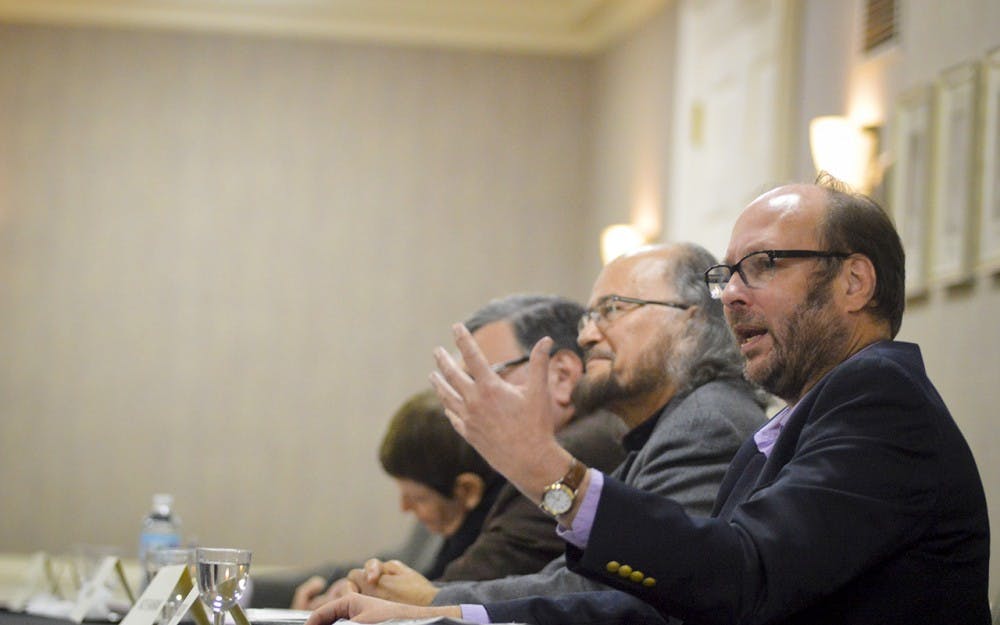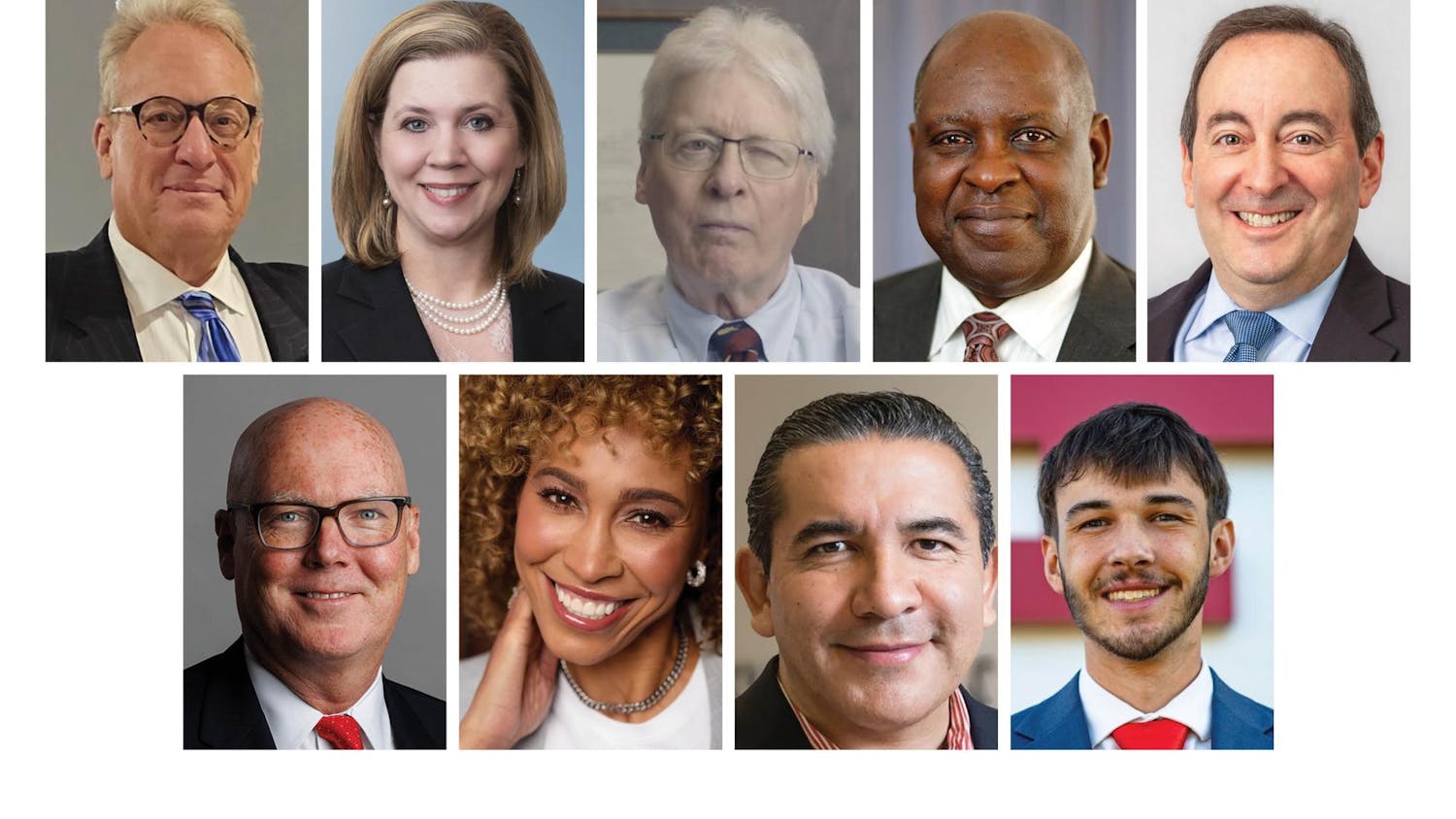In the aftermath of the presidential election, French professor Brett Bowles has seen many people uneasy about the possible effects of the election on the world.
Bowles decided to organize a panel to discuss these topics in depth. Students and professors from various academic departments gathered Wednesday in the Indiana Memorial Union to talk about the presidential election in a global perspective. A group of five faculty members discussed topics like economic interactions with foreign countries, effects on the Middle East, and changes in relations between the U.S. and Russia.
“We wanted to organize this event to put the election in a larger global context, so we can look at the election and its impact not only on the U.S. but how it relates to U.S. policy and elsewhere in the world,” Bowles said.
Sophomore Izzy Krahling came to the discussion to learn how President-elect Donald Trump’s actions may affect the future.
“I want to get another perspective of ‘Are we going to be okay,’” Krahling said.
David Audretsch, School of Public and Environmental Affairs professor, started the conversation by discussing Trump’s economic plans. He described these plans as a stimulus to the economy.
“When I learned economics, we learned what saved America and the world from the Great Depression was stimulus,” Audretsch said.
But he said he does not believe this stimulus is necessary now. Back then unemployment was at 25 percent, but now it is at four percent, he said. There was also an emphasis on buying American-made goods, while now we buy cars, home appliances and clothes from other countries.
Audretsch said he believes the focus should be on embracing globalization rather than succumbing to being a victim of it.
“People, organizations and firms should look outward and learn about other cultures, countries and people,” Audrestsch said. “I don’t have a sense that the president-elect has this in mind as a strategy.”
Both Feisal Istrabadi, founding director of the Center for the Study of the Middle East, and Nazif Shahrani, anthropology professor, discussed the election’s effects on Muslims in the U.S. and the Middle East. Istrabadi said he has an impression that there is an immense amount of fear throughout the Muslim population, but Shahrani said he does not believe Trump is entirely to blame.
Shahrani discussed how there are a large amount of Americans supporting Trump’s Islamophobic ideas. He also explained that the Federal Bureau of Investigations has been coming to Muslims’ doors and interviewing them long before Trump came into the picture.
Shahrani said he does believe Trump is authorizing these actions from the American people, but after receiving emails of support from non-Muslims, he said he has hope for the future.
“We are concerned, but we are not afraid,” Shahrani said.
Overall, all speakers discussed Trump’s lack of focus on foreign policy issues. This is what leads political science professor Dina Spechlerto be uncertain of Trump’s actions regarding Russia.
As could be seen during the election, she said Trump seems to be close with Russian leader Vladimir Putin. Once Trump won the election, Russian media was full of praise, she said.
For the future, she said she expects to see changes in U.S. relations with Ukraine and Syria. The future of the North Atlantic Treaty Organization is also uncertain, she said.
Bowles closed the talk by explaining that what has happened with the election here is not uncommon in other countries.
“In some ways, European social democracies are more vulnerable than the U.S.,” Bowles said.
He gave examples of the Brexit decision, where British citizens voted to exit the European Union, as well as high anti-Muslim tendencies in France. He said he hopes this helps people understand that these problems are not solely U.S. issues.
Krahling said she believes it is important to stay up-to-date with political issues like these.
“Politics shapes everybody in America, and it will shape every single person here,” Krahling said.




